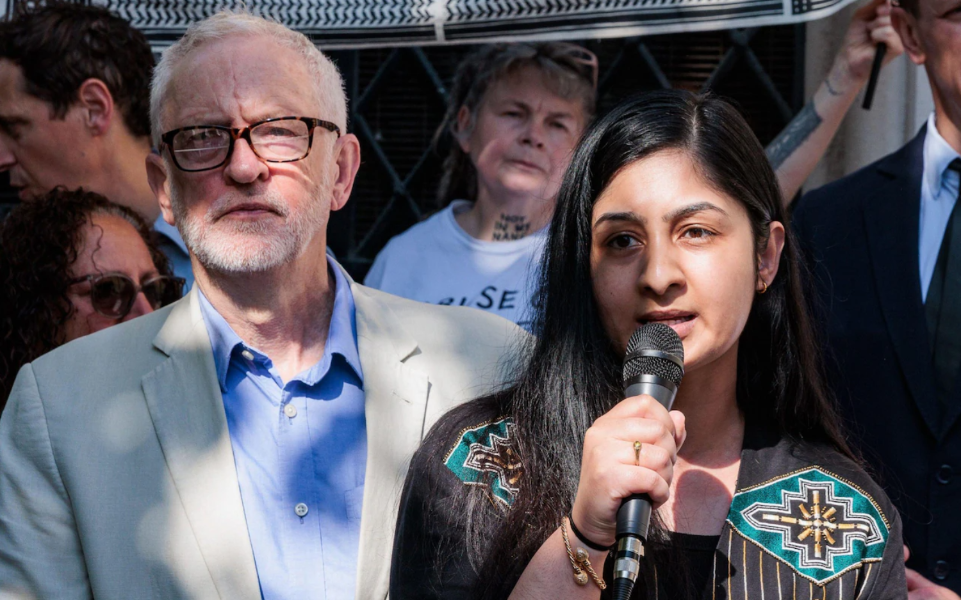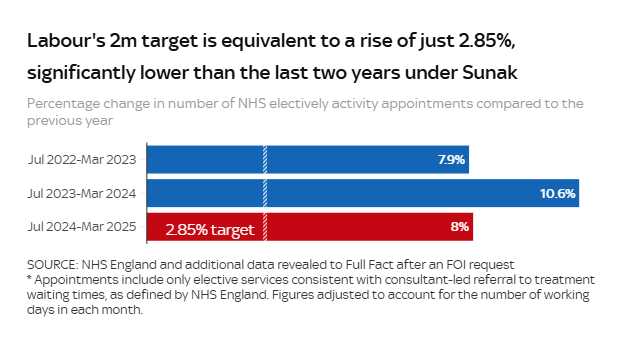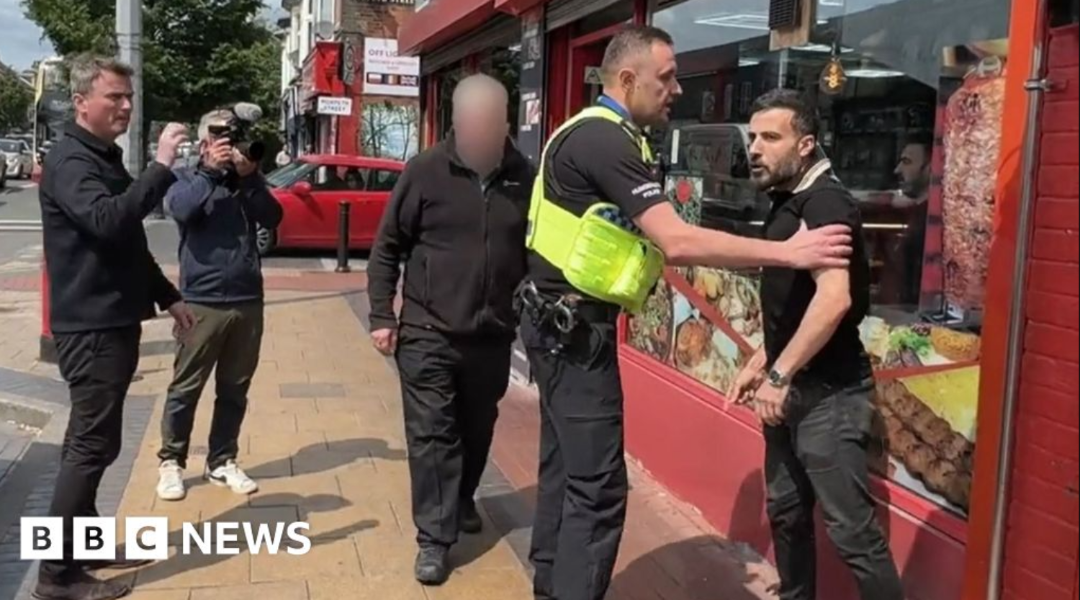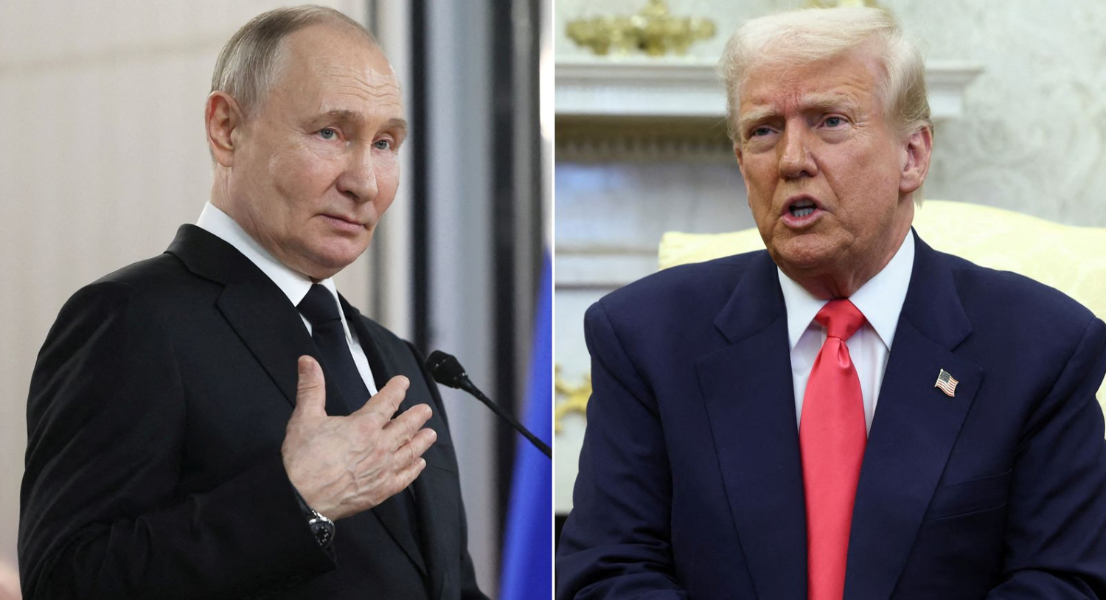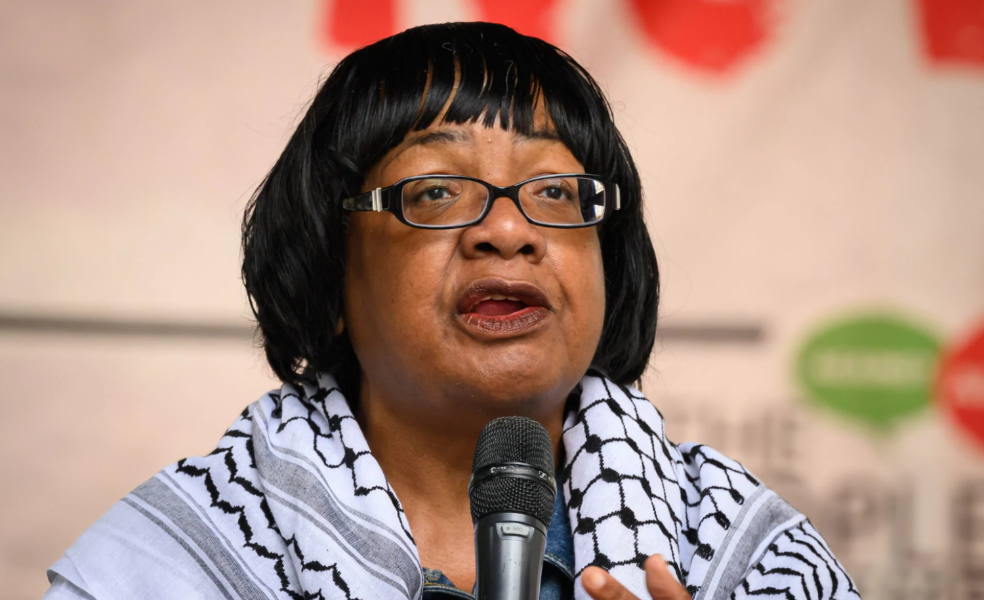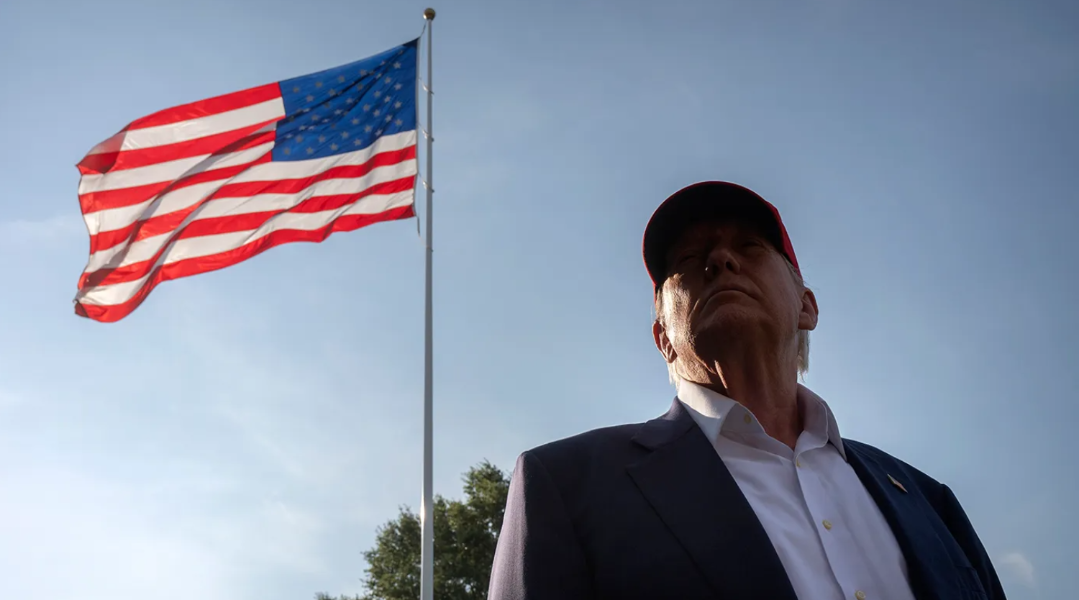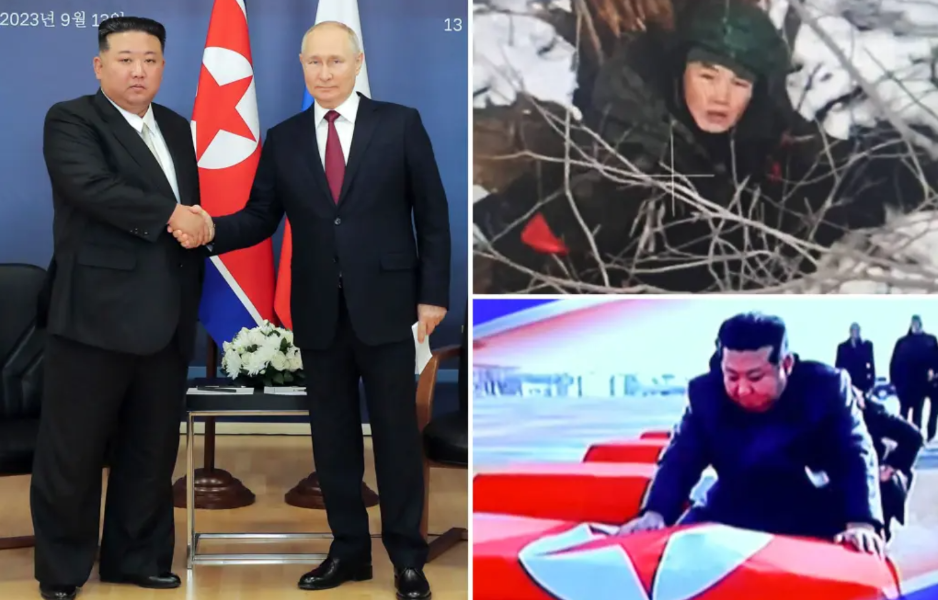-
Posts
10,735 -
Joined
-
Last visited
Profile Information
-
Location
Thailand
Previous Fields
-
Location
Thailand
Recent Profile Visitors
30,978 profile views
Social Media's Achievements
-

UK Father of Grooming Victim Who was Raped by 60 Men Speaks Out
Social Media replied to Social Media's topic in World News
@Harrisfan enough of the diversion attempts and read the OP. Any more posts removed and you will find it more than posts -

UK Father of Grooming Victim Who was Raped by 60 Men Speaks Out
Social Media posted a topic in World News
Marlon West, 51, says his daughter Scarlett was raped by more than 60 men from the age of 14. The father of a grooming victim who was raped by more than 60 men has said she still lives with the "trauma every single day". Marlon West, 51, said Scarlett, now 20, was an academic student at a school in Greater Manchester. She was happy with a good friendship group and enjoyed riding her horse, Jasper. But her life changed after she was attacked by a gang at a bus station - they started bullying her and she decided it was better to become their friends. An older female member then started grooming her for rape gangs made up of Muslim men, her father told Sky News. Mr West said six men were involved in grooming her from the age of 14 but she was raped by more than 60 before the abuse finally stopped shortly before she turned 18. By then, she was too terrified to leave home. "Scarlett isn't a survivor and a lot of these other girls aren't survivors," he said. "The reason being is they're still living with the trauma every day." Mr West, an advanced nurse practitioner for mental health services at the NHS, said his daughter was thrown out of school aged 14 and would go missing for weeks at a time. On one occasion, he tracked her down to a property in Derbyshire, but when he eventually persuaded police to attend, he was told Scarlett was "safe" with the woman who groomed her and "her friends". Mr West said he was "absolutely furious" when police and social services dismissed the abuse as "a lifestyle choice" and was so desperate he put Scarlett into care when she was 15. "I couldn't keep her safe," he said. "It's the hardest decision of my life." But within a week of her returning home, when she had to leave the care system after turning 16, she was going missing again. Mr West said the female groomer had stayed in contact with Scarlett and "was literally waiting for her" when she came home. She was then trafficked all over the country, including Bradford, Birmingham and London. Mr West said he had to "scream" at police to track her down before they raided a property in Rochdale where she was found along with heroin and crack cocaine. Scarlett was arrested and released on bail, but wasn't charged because she was on a Home Office database as being at risk of trafficking, he said. "Even though that [arrest] was inappropriate, that stopped it because she was terrified of going out of the house, which she still is now to a certain extent." Mr West believes the abuse also came to an end because she was getting older and her abusers were no longer interested. "This is not just about child sexual exploitation but also criminal exploitation - she was doing county lines, she was picking up firearms for them," he said. Mr West said any child can be at risk of grooming. "They're stereotyping a lot of these survivors, that they're coming from broken homes, or they're in care," he said. "A groomer doesn't stand outside a school gate and think, 'I'm not grooming her because her dad's a doctor or her dad's a GP' - they don't care. Once they target, that's it." Mr West was speaking as a report by police watchdogs revealed Greater Manchester Police has live grooming investigations involving 714 victims and survivors. The force said it has 1,099 lines of enquiry relating to potential suspects but only 269 who are confirmed. "I think there's more - a lot of survivors haven't come forward. One, because they're probably still being groomed and secondly because they're terrified of GMP and how they've been treated in the past," he said. "It's higher than it's ever been. Services such as police and social services are terrified of political correctness. "The groomers know they can get away with it because there aren't many arrests and so it's increased." GMP Chief Constable Sir Stephen Watson promised to go after child rapists and paedophiles "relentlessly" after the publication of the report, which was largely positive about the force's turnaround in tackling the gangs. But Mr West believes they are "still failing", although he welcomed the investigation opened into his daughter's case. He said he is "hopeful" the national inquiry into grooming gangs by the government last month "will expose a lot of the cover-ups and give accountability" but is worried about the involvement of services such as councils and police forces because of a lack of trust. A GMP spokesperson said: "We have met with Scarlett and her father and we're conducting an extensive investigation into their allegations. "While we understand the impact of their experiences cannot be undone, we aim to ensure that the experience of the GMP of today would be much improved from that of previous years." A Tameside Council spokesperson previously said they were legally unable to comment on Scarlett's case. Related Topics: Baroness Casey Demands Truth and Justice for Grooming Victims Casey Report Exposes Asylum Seekers’ Involvement in Grooming Gang Investigations Labour Under Fire as Grooming Survivors Condemn Minister’s ‘Dog Whistle’ Remark Labour Revises Plans on Grooming Gang Investigations Amid Backlash The Controversy Over Islamophobia and Grooming Gang Investigations Starmer Faces Rising Pressure as Labour MPs Demand Grooming Gangs Inquiry The Silenced Truth: How Political Correctness Delayed Justice for Grooming Victims Grooming Networks Persist in Oxford, Warns Former Investigator Britons Overwhelmingly Support a New Grooming Gang Inquiry Politicians Must Address the Ethnicity of Grooming Gangs, Says Whistleblower’s Aide David Lammy Criticizes Sajid Javid for Remarks on Ethnicity of Grooming Gangs Rift Between Keir Starmer and Yvette Cooper Over Grooming Gangs Crisis Deepens Labour Faces 'conspiracy of silence' on Grooming Gangs Inquiry UK Ex-MP Claims Grooming Gang Ethnicity Was Suppressed to Protect Votes Kemi Badenoch Urges National Inquiry into UK Grooming Scandal Adapted by ASEAN Now from Sky News 2025-07-05 -
Corbyn and Sultana Launch New Hard-Left Party to Challenge Labour A fresh divide on the British Left has emerged with the announcement that Jeremy Corbyn and Zarah Sultana will co-lead a new hard-Left political party, directly challenging Sir Keir Starmer’s Labour across the country. The new group, still unnamed, marks a formal political rupture between Labour’s current leadership and the faction once at its heart. Ms Sultana, who resigned from Labour on Thursday, revealed the plan in a message posted on X, formerly Twitter. “Jeremy and I will co-lead the founding of a new party, with other independent MPs, campaigners and activists across the country,” she wrote. She went on to highlight that her departure from Labour came after 14 years of membership. The announcement follows years of tension between Labour’s Left and Starmer’s centrist leadership, and comes just five years after Mr Corbyn was expelled from the party. The new political movement aims to unite disaffected Labour supporters, independent MPs, and grassroots activists behind a revived socialist agenda. Ms Sultana framed the upcoming general election as a fundamental crossroads, declaring it a choice between “socialism or barbarism.” Her stance positions the new party as a principled alternative to Labour’s perceived compromises under Starmer’s leadership. The move also comes in the wake of a major policy backlash within Labour itself. Last week, Sir Keir faced a rebellion from 49 of his own MPs over proposed welfare reforms that would have reduced access to disability benefits. Facing pressure, the Labour leader was forced into a public U-turn. Ms Sultana indicated that such welfare policies were a core reason for her departure and a key issue for the new party’s campaign. “A year ago I was suspended by the Labour Party for voting to abolish the two-child benefit cap and lift 400,000 children out of poverty. I’d do it again,” she wrote. “I voted against scrapping winter fuel payments for pensioners. I’d do it again. Now the Government wants to make disabled people suffer – they just can’t decide how much.” Her comments suggest the new party will make benefit protections, anti-poverty measures, and expanded social care central to its platform. The formation of this new group is expected to further complicate Labour’s electoral path, particularly among younger and more left-leaning voters who once backed Corbyn in record numbers. Although the party’s name and official platform have yet to be unveiled, the broader implications are already clear. A recent poll suggests that a new Left-wing force could capture up to 10 percent of the national vote—posing a serious threat to Labour’s chances of securing a clear majority. According to the same polling, if such a split occurs, Labour could find itself tied with the Conservatives at just 20 percent support each. The dynamic echoes the split on the political Right, where Reform UK has drawn voters away from the Conservatives and reshaped electoral calculations. Corbyn and Sultana now appear poised to trigger a similar disruption on the Left, capitalising on discontent among Labour’s former base. While Sir Keir Starmer has sought to reposition Labour closer to the political centre in a bid to win back power, the emergence of a new hard-Left alternative underscores the difficulty of uniting the party’s ideological wings—and the risks of leaving its traditional supporters behind. Adapted by ASEAN Now from The Telegraph 2025-07-05
-
Can Diddy Reclaim His Throne? A Legacy Tarnished and a Future in Question In the wake of a divisive verdict in Sean "Diddy" Combs' high-profile trial in New York, tensions flared outside the courthouse as supporters and critics clashed in the summer heat. Some protesters argued the music mogul should have been found guilty on more serious charges, while others—chanting "Free Diddy" and dousing themselves in baby oil—celebrated what they saw as a vindication. The mixed jury verdict offered no easy resolution. While Combs was acquitted of racketeering conspiracy and sex trafficking, he was convicted on two counts of transporting women, including former girlfriend Cassie, across state lines for sex acts and prostitution. The convictions could carry a sentence of up to 10 years each, though legal experts anticipate a lighter sentence, potentially allowing Combs to walk free within a few years. Despite the serious charges and the salacious details that emerged—graphic accounts of drug-fueled "freak offs" involving male escorts, violence, and baby oil—some industry insiders believe Combs may attempt a comeback. “He was one of the most famous people in hip-hop,” said August Brown, music writer for the Los Angeles Times. “He was an incredibly important figure in evolving both that genre and the music industry as a whole into a commercial juggernaut.” Indeed, Combs’ influence on 1990s and early 2000s music is undeniable. As founder of Bad Boy Records, he launched the careers of iconic artists like The Notorious B.I.G., Mary J. Blige, Faith Evans, and 112. He also collaborated with Mariah Carey, Usher, and Busta Rhymes, and earned three Grammy Awards, including for his 1997 hit “I’ll Be Missing You,” a tribute to B.I.G. But the trial dragged a darker side of Combs into the spotlight. The jury was asked to decide whether his actions amounted to criminal coercion or were part of a consensual, albeit extreme, lifestyle. “The jury was just unpersuaded that what amounted to an extremely baroque and violent and drug-stoked sex life on Diddy's behalf amounted to a criminal organisation,” Brown explained to BBC World Service. Still, the two convictions and the sordid revelations may be impossible to erase from the public consciousness. “I cannot imagine any kind of redemption arc as far as him remaining as an artist or a music mogul,” Brown said. “I think the public will remember him as an important figure whose name is now permanently associated with this very-difficult-to-process range of charges.” Others in the industry agree. “He's definitely going to try, but I think the damage is just too irreparable at this point,” said Alvin Blanco, content director of Hiphopwired.com. Mark Anthony Neal, professor at Duke University, echoed the sentiment: “There’s no doubt” Combs’ legacy is tarnished, especially given his role in taking hip-hop “from the ghettos to the mainstream of America to the global mainstream.” Even before the trial, Combs’ relevance in the music world had waned. “He doesn't really have much of a music career any more, and he hasn't for about 15 years,” said Variety’s Jem Aswad. “He just moved on to other businesses—beverages, apparel... Anything he did in music over the last 15 years was almost just for fun.” Yet his profile had not completely faded. His 2023 album The Love Album: Off The Grid was Grammy-nominated, and he received MTV’s Global Icon award. And in the digital age, fallen stars can retain fanbases. R. Kelly, serving 30 years for sex trafficking, still attracts millions of listeners online. Supporters believe Diddy’s fan loyalty might outlast his legal woes. Anoushka Mutanda-Dougherty, host of the Diddy on Trial podcast, said, “I feel like he will be able to reclaim a top spot in hip-hop just because of the sheer amount of support we’ve seen online and here at the courthouse… He won’t be the first musician to be a convicted criminal who carries on having a music career, especially in hip-hop.” But for others, the stains of the case are too indelible. Angela Star, a content creator who watched the verdict live, summed up the lasting impression: “His image is tainted, and when you think of Diddy now, you think of…” She let the sentence trail off, holding up a bottle of baby oil in silence. Whether Sean Combs will stage a comeback or fade into infamy remains to be seen. What’s clear is that the legacy he once built has been irrevocably transformed. Adapted by ASEAN Now from BBC 2025-07-05
-

UK Growth in NHS appointments continues to slow under Labour
Social Media posted a topic in World News
Labour’s NHS Appointment Claims Under Scrutiny as Growth Slows The Labour government’s claims of a record-breaking performance in delivering NHS appointments are being challenged, as new data suggests the rate of increase has actually slowed since Sir Keir Starmer took office. Despite headlines boasting millions of additional appointments, closer examination reveals that the pace of progress is less impressive than portrayed. At a press conference on Thursday, the Prime Minister proudly announced that his government had surpassed its target, delivering four million extra NHS appointments within its first nine months. “At the last election a year ago, we promised two million extra appointments in the NHS in the first year of a Labour government,” Starmer said. “We have now delivered four million extra appointments and that's thanks to your hard work and that of your colleagues. Four million. That’s a record amount for a single year ever,” he told NHS staff. But Sky News and independent fact-checkers at Full Fact have found that these figures may not be as extraordinary as they sound. In fact, the 8.0% rise in appointments since Labour came to power falls short of the 10.6% increase achieved by Rishi Sunak’s Conservative government over the same period the year before. Sunak’s government saw five million additional appointments in that timeframe. The government's original pledge to deliver two million extra appointments was, according to Full Fact, modest from the outset. “If [the government] achieved a rise of two million in its first year in office, it would be by far the smallest rise since the pandemic,” the organisation noted. While Labour has doubled that figure, experts point out that the increase still represents a relatively small percentage of the total. To put it into perspective, two million extra appointments make up less than 3% of the nearly 70 million conducted in the year leading up to June 2024. And while the annual total now hovers around 75 million in England, that number naturally grows with rising demand and a growing population. The real issue, critics argue, is not whether the number of appointments is increasing, but whether that increase is sufficient to reduce the NHS’s substantial backlog and meet growing demand. A key point of contention has been Starmer’s claim that the four million figure represents a record. When questioned, the Department of Health and Social Care clarified that what the Prime Minister meant was that the overall number of appointments reached a record level, not that the four million additional appointments were a record by themselves—a crucial distinction. Full Fact journalist Leo Benedictus commented: “While the total number of appointments may be at a record high, the actual rise in these appointments under Labour is significantly lower than it was the previous year.” He added that historical data, obtained by Full Fact through the Freedom of Information Act, indicates that appointment numbers have been steadily rising for years and that Labour’s increase is not exceptional. “It still isn’t entirely clear exactly which sorts of activity the Government is claiming is at record level, because for these appointments alone that just isn’t true,” Benedictus said. “No voter thinks improving the NHS is simple or easy, but in a time of historically low trust in politics, it is even more important that the Government is transparent and honest about their data and its significance.” In light of these findings, critics argue that while Labour’s achievements in boosting appointment numbers may be notable, they are far from unprecedented—and claims of record-breaking progress may ultimately do more to undermine public trust than to bolster it. Adapted by ASEAN Now from Sky News 2025-07-05 -
Trump's 'Golden Age': A Two-Week Blitz of Political Dominance and Policy Wins President Donald Trump has entered what allies and even some critics are calling the most powerful phase of his presidency, as he capped a whirlwind fortnight of domestic and international achievements with the passage of the “One Big Beautiful Bill Act.” At 79, the president is riding a wave of political and legislative victories that many consider unprecedented, even as skeptics warn of deepening national divides. The legislation, passed on Thursday, fulfills several of Trump’s long-standing campaign promises, including tax cuts on tips, overtime, and Social Security benefits. Trump plans to sign the bill at a festive Independence Day event on the White House lawn, where B-2 stealth bombers will conduct a flyover in tribute to their role in the June 21 U.S. airstrikes on Iran’s nuclear sites. Just two days after the strikes, Trump brokered a surprise ceasefire between Israel and Iran — a diplomatic breakthrough that stunned foreign policy observers. Trump's influence was also on full display at the recent NATO summit, where he successfully pressured member nations to commit to increasing military spending to 5% of GDP by 2035. Back home, the Supreme Court handed him key wins on immigration policy and judicial power, while CBS’s parent company agreed to pay $16 million after airing a deceptively edited interview with Vice President Kamala Harris. In a flurry of additional developments, Canada scrapped its digital services tax on American tech companies, the University of Pennsylvania revoked accolades from transgender swimmer Lia Thomas, and the administration unveiled a forthcoming trade deal with Vietnam. The stock market soared to record highs while illegal border crossings dropped to record lows. The sweeping legislation also provides $25 billion for Trump’s "Golden Dome" missile defense initiative, expands tax deductions for car loans, and lifts the cap on state and local tax deductions to $40,000. These provisions have drawn praise from Republicans in high-tax states like New York and New Jersey. “I didn’t vote for him and I’m not always aligned with his approach, but his success on the domestic and international front in such a compressed period of time is nothing short of remarkable,” said Michael LaRosa, a former Biden White House spokesman. “It’s all due to his impressive use of political and executive power.” Another former Biden official added, “You voted for it because you’re scared of the guy. And frankly, that’s impressive, given that Biden never invoked fear in anyone.” Chris LaCivita, co-manager of Trump’s 2024 campaign, framed the momentum as a historic political shift. “If you work, pay taxes and aspire for a better tomorrow, you are voting Republican,” he said. “This transformation in political power is because of the leadership and determination of one person — President Trump.” Kellyanne Conway, a longtime Trump ally, declared, “These have been the most consequential two weeks of Trump’s second term, as he makes peace deals, trade deals and tax deals, everywhere all at once. America is in its Golden Age.” Vivek Ramaswamy, now running for governor of Ohio, echoed the enthusiasm. “President Trump is on a roll,” he said. “By 2026, it will be up to the states to lead the way on other critical fronts.” Still, challenges remain. Trump has set a July 9 deadline for finalizing bilateral trade deals to prevent retaliatory tariffs that could spike consumer prices. Thus far, only agreements with China, the UK, Vietnam, and a "roadmap" with India have been announced. Meanwhile, Federal Reserve Chair Jerome Powell has resisted pressure to lower interest rates, keeping borrowing costs high despite easing inflation. American University professor Leonard Steinhorn noted that Trump’s dominance, while potent, is polarizing. “He presides over half a country that believes he is taking us on a very bad path,” he said, warning of authoritarian tendencies. LaRosa urged fellow Democrats to learn from Trump’s strategy. “Even though I may disagree with him substantively, his effective use of power as an executive and party leader is something to admire,” he said. “Democrats should learn from him and replicate it the next time we have the keys.” Adapted by ASEAN Now from NYP 2025-07-05
-
Behind the Counter: Mini Mart Workers Caught in the Crossfire of Britain's Illegal Tobacco Trade An undercover BBC investigation has exposed the alarming scale of illegal tobacco sales taking place in mini marts across British high streets, with law enforcement agencies admitting they are struggling to contain the growing problem. Organised crime groups are suspected of being behind the illicit trade, reaping profits comparable to those made from heroin and cocaine, according to Trading Standards. Describing the situation as a "war," Trading Standards officers say their efforts are being hampered by a severe lack of resources. Shops implicated in the scandal have been found to employ asylum seekers who have no legal right to work in the UK — a troubling revelation that points to broader issues of exploitation and illegal employment. HM Revenue and Customs estimates that the illegal tobacco market is costing the UK economy at least £2.2 billion in lost tax revenue. The true figure could be even higher, given the difficulty in tracking underground supply chains. The Home Secretary, Yvette Cooper, responded to the BBC's findings by condemning the actions of the criminal networks involved. “It is a disgrace that criminal gangs are trying to abuse our high streets,” she said. Cooper added that the government has ramped up enforcement since the most recent election: “We have increased raids and arrests for illegal working by 50%.” In a striking moment captured during the BBC’s investigation, UK editor Ed Thomas confronted shop workers outside mini marts where illicit cigarettes had been discovered. Some of the contraband was hidden inside concealed tunnels and secret compartments within the shops — a tactic that highlights the lengths these operations will go to in order to avoid detection. The confrontation quickly turned heated, as workers reacted angrily to being approached by the reporter. The revelation that illegal tobacco sales are not only thriving but are also deeply embedded in high street retail presents a significant challenge for authorities. With limited manpower and rising levels of sophistication from criminal groups, Trading Standards and HMRC appear to be fighting an uphill battle. The use of vulnerable individuals, such as asylum seekers, to front these operations further complicates the issue, blurring the line between perpetrators and victims. As pressure mounts on the government to act decisively, the investigation raises serious questions about how such widespread activity has managed to flourish with so little oversight. Despite recent increases in enforcement activity, many say it is still not enough to keep up with the scale and reach of the illicit trade. Until the government can provide greater support and coordination to law enforcement agencies and address the systemic vulnerabilities being exploited, the illegal tobacco market seems set to remain a lucrative and dangerous fixture on Britain’s high streets. Adapted by ASEAN Now from BBC 2025-07-05
- 1 reply
-
- 2
-

-

-
Putin Reaffirms Ukraine War Objectives in Lengthy Call with Trump Russian President Vladimir Putin has told U.S. President Donald Trump that Moscow will not abandon its objectives in Ukraine, despite renewed appeals from Washington to bring the war to an end. The two leaders spoke by phone for nearly an hour, according to the Kremlin, marking their sixth publicly acknowledged conversation since Trump's return to the White House in January. Kremlin aide Yuri Ushakov revealed to reporters that during the call, Mr. Trump “again raised the issue of an early end to military action” in Ukraine. In response, Putin made clear that “Russia will not back down” from its goals. Ushakov said the Russian president emphasized that these aims include “the elimination of the well-known root causes that led to the current state of affairs.” The term “root causes” has long been used by Moscow as shorthand for its insistence that Ukraine’s movement toward NATO and the West posed an existential threat. Russian officials argue this justified the 2022 invasion. However, Ukraine and many of its European allies reject this as a pretext, accusing Russia of waging a neo-imperialist war to redraw Europe’s borders by force. Despite this, Mr. Trump has previously expressed understanding for aspects of Russia’s position, occasionally drawing criticism from NATO partners. Despite reaffirming his hardline stance, Mr. Putin also indicated that Russia remains open to negotiations, Ushakov said. He conveyed to Trump that any prospective peace deal would have to include two key concessions from Ukraine: the abandonment of its NATO membership ambitions and formal recognition of the territories Russia has occupied since the war began. Putin reportedly updated Trump on the latest agreements reached between Russia and Ukraine, including the recent prisoner and body exchanges that took place last month. While seen as minor confidence-building measures, these exchanges have not yet paved the way for broader political reconciliation. No timeline was discussed during the call regarding the anticipated third round of peace talks in Istanbul. Furthermore, there was no mention of the Biden administration’s recent decision to suspend deliveries of key weapons systems to Ukraine, including advanced air defense missiles and precision-guided artillery rounds. Two sources familiar with that situation say the U.S. military is reassessing its own stockpile levels amid growing concerns about readiness. According to Russian state news agency Tass, Putin also used the occasion to congratulate Trump on the American national holiday and went further by asserting that Russia contributed to the formation of the United States. Kremlin aide Yury Ushakov recounted the exchange, stating, “It was noted from our side that Russia played an important role in the formation of American statehood including during the War of Independence 250 years ago, and then during the Civil War, which ended 160 years ago.” Speaking later to reporters at Joint Base Andrews, President Trump offered a brief summary of the conversation. “I didn’t make any progress with [Putin] today,” he said, offering a blunt assessment of his latest diplomatic overture. The call comes at a tense moment in the nearly three-year-long war. With Ukraine continuing to press for more Western support and Russia showing no sign of withdrawing its forces, the prospects for a negotiated peace remain uncertain. The White House has not issued a detailed readout of the call, though a spokesperson confirmed it took place and characterized it as “a candid exchange.” Adapted by ASEAN Now from Sky News 2025-07-05
-
Forecasting Fear: Has the Met Office Lost Sight of Its Mission? While much of southern England recently sweltered in a record-breaking heatwave, other parts of the UK, such as Northumberland, experienced cool breezes off the North Sea. The UK Met Office promptly declared it “virtually certain” that human activity was responsible for the hottest June in England since 1884 and the second hottest across the UK as a whole. This declaration might appear to confirm the obvious, but upon closer inspection, it reveals a troubling trend: the nation's chief weather forecaster appears increasingly entangled in climate activism rather than objective meteorology. Yes, greenhouse gases do contribute to global warming, but attributing exact temperature figures to human influence requires nuance. For example, the much-publicised 34.7°C recorded at St James’s Park in London occurred at a notoriously unreliable “class 5” weather station, one with an acknowledged error margin of up to 5°C. This station sits next to a busy tarmac path in the middle of the capital, where the well-documented urban heat island effect further amplifies temperatures. According to research by engineering firm Arup, London’s urban heat island adds an average of 4.5°C to recorded temperatures. So yes, some of this heat is indeed man-made — but perhaps not in the way the Met Office intended. Historical comparisons also help ground the discussion. A century ago, in 1911, Northamptonshire hit 36.7°C — warmer than the recent peak. As the planet slowly warms, more hot summer days are inevitable. But it’s winter nighttime temperatures, not summer highs, that have risen more rapidly, just as the greenhouse effect predicts. The Arctic is warming faster than the tropics, and winter nights are becoming milder faster than summer days are growing hotter. The Met Office, however, seems increasingly preoccupied with speculating about long-term climate scenarios rather than sticking to its core task: short- and medium-term weather forecasting. A visit to the organisation’s climate pages reveals projections for the year 2070 claiming summers may be one to six degrees warmer and “up to” 60% drier, depending on the region. These vague estimates offer vast leeway, hedged with caveats that make them nearly impossible to challenge. More concerning is the basis for these forecasts: “We base these changes on the RCP8.5 high emissions scenario,” the Met Office admits. That revelation is startling. RCP8.5, a hypothetical pathway developed by economists, is widely criticised as an unrealistic and outdated worst-case scenario. It assumes a future where the world becomes hopelessly addicted to coal, burning ten times more than in 2000 and even using coal to produce fuel for cars and planes. It also assumes a global population of 12 billion by 2100 and a total stagnation in technological progress — assumptions that most experts dismiss as fantasy. Even climate advocacy site Carbon Brief concedes the model was misused: “The creators of RCP8.5 had not intended it to represent the most likely ‘business as usual’ outcome… Its subsequent use as such represents something of a breakdown in communication between energy systems modellers and the climate modelling community.” The model’s lead architect, Keywan Riahi, has said, “I wished I would have been clearer with what I meant by ‘business as usual’.” The Intergovernmental Panel on Climate Change itself has warned against using RCP8.5 as a forecast. In 2020, the BBC — not known for climate scepticism — labelled the scenario “exceedingly unlikely.” Yet in 2025, the Met Office still uses RCP8.5 as a foundation for long-term projections. This is not a simple communication error. It appears to be a deliberate choice to embrace the most extreme outcomes, generating fear and grabbing headlines. If the Met Office adopted more balanced, probable scenarios, the future might sound less apocalyptic — and perhaps less newsworthy. It’s time for the Met Office to return to its core mission: providing the public with accurate, honest weather forecasts. If it must peer 45 years into the future, let it do so using credible, moderate assumptions — even if they’re not as frightening. Adapted by ASEAN Now from The Telegraph 2025-07-05
-

Health Thailand Urges Action as HIV Cases Exceed 500,000
Social Media replied to snoop1130's topic in Thailand News
@BLMFem your trolling response was removed. 17. ASEAN NOW news team collects news articles from various recognised and reputable news sources. The articles may be consolidated from different sources and rewritten with AI assistance These news items are shared in our forums for members to stay informed and engaged. Our dedicated news team puts in the effort to deliver quality content, and we ask for your respect in return. Any disrespectful comments about our news articles or the content itself, such as calling it "clickbait" or “slow news day”, and criticising grammatical errors, will not be tolerated and appropriate action will be taken. Please note that republished articles may contain errors or opinions that do not reflect the views of ASEAN NOW. If you'd like to help us, and you see an error with an article, then please use the report function so that we can attend to it promptly. -
@bannork your post on an AP report has been removed. It was already posted by another member on the same page, since then you've double posted twice. Please stop it and read the topic before posting duplicate articles. Another post that was a general article on the number of deaths in Gaza in the last few days has also been removed. This topic is: US Pushes Forward with Private Aid Plan for Gaza Amid UN Opposition
-
Diane Abbott has joined a small group of Labour and former Labour MPs in opposing a government move to designate the pro-Palestinian group Palestine Action as a terrorist organisation. Despite the rebellion, the legislation passed overwhelmingly in the House of Commons on Wednesday with 385 votes in favour and just 26 against—a majority of 359. Nine Labour MPs voted against the proscription, along with several independent MPs including former party leader Jeremy Corbyn and ex-shadow chancellor John McDonnell. The measure is now set to go before the House of Lords, with a vote expected Thursday. If passed, membership in or support for Palestine Action could become a criminal offence carrying a penalty of up to 14 years in prison. Security minister Dan Jarvis defended the government's position, saying, “Palestine Action is not a legitimate protest group. People engaged in lawful protest don’t need weapons. People engaged in lawful protest do not throw smoke bombs and fire pyrotechnics around innocent members of the public. And people engaged in lawful protest do not cause millions of pounds of damage to national security infrastructure, including submarines and defence equipment for Nato.” The government’s decision follows an incident on June 20 in which two aircraft were vandalised at RAF Brize Norton—an attack claimed by Palestine Action. Five individuals have since been arrested on suspicion of terrorism-related offences. Jarvis described the act as “just the latest episode in Palestine Action’s long history of harmful activity,” adding, “Palestine Action has orchestrated a nationwide campaign of property damage featuring attacks that have resulted in serious damage to property and crossed the threshold from direct criminal action into terrorism.” But the move has sparked fierce criticism from several MPs. Zarah Sultana, Independent MP for Coventry South, called the proscription a “draconian overreach” and compared it to the criminalisation of historical protest movements like the Suffragettes. “To equate a spray can of paint with a suicide bomb isn’t just absurd, it is grotesque,” she said. “It is a deliberate distortion of the law to chill dissent, criminalise solidarity and suppress the truth.” Clive Lewis, Labour MP for Norwich South and a former soldier, also raised serious concerns. “I understand what terrorism is. I was in London on July 7 in 2005 and I watched my community, this city, attacked by real terrorists,” he said. “And at that point, rightly or wrongly, I decided I was going to Afghanistan to fight the terrorists. And I went because I love this country, and I love our democracy, and I want to see it protected. I think today’s proscription order against Palestine Action undermines that and I wish my Government wouldn’t do it.” Outside Parliament, the fallout was immediate. More than 1,000 demonstrators gathered in Westminster for a protest against the planned ban. Among the speakers were Jeremy Corbyn, Ayoub Khan and John McDonnell, who said the proscription “was an attack on democracy and an attack on all of us.” The protest was punctuated with chants of “free, free Palestine” and “from the river to the sea.” Tensions escalated when two men draped in Israeli flags appeared, prompting louder chants, including “death, death to the IDF” and “IDF are terrorists.” The protest also saw four arrests, including a man who blocked Downing Street’s gates with his mobility scooter and a woman who locked herself onto a suitcase outside Parliament. The Metropolitan Police cited breaches of Public Order Act conditions imposed to manage the protest. Palestine Action has stated it will seek a legal challenge against its proscription. A hearing scheduled for Friday will determine whether the ban can be temporarily blocked while a longer legal process unfolds. Meanwhile, MPs also voted to proscribe two white supremacist organisations: the Maniacs Murder Cult, a neo-Nazi group linked to global violence, and the Russian Imperial Movement, whose paramilitary arm has fought alongside Russian forces in Ukraine. Lord Walney, former government adviser on political violence, welcomed the vote, saying, “This is not about banning peaceful protest but putting a stop to a group known for its use of violence and intimidation of workers.” He warned Labour to take a hard line: “Labour must make clear to the rebels that once proscription is in place, any further sympathy for this group will result in their immediate expulsion from the Party.” Related Topics: Palestine Action Echo Glastonbury Chant ‘death to the IDF’ ‘Damage as much as possible’ Undercover with Palestine Action How in Just 5 Years The Corbynista Huda Ammori Steered Palestine Action's Militant Campaign Watch: Activists Claim Damage to RAF Military Aircraft in Protest Against Gaza Operations Sabotage Campaign Targets UK Defence Suppliers in Unrelenting Attacks Activists Vandalize Trump’s Turnberry Golf Course in Pro-Palestinian Protest Pro-Palestinian Students Vandalize Cambridge University's Senate House in Gaza Protest Pro-Palestine Activists Vandalize Barclays and JP Morgan Buildings in Leeds Pro-Palestine Mobs Wreck Barclays Banks Across the UK 7 Activists Face Court Alleged Terrorist-Related Actions at Israeli Defence Firm UK Site Adapted by ASEAN Now from The Telegraph 2025-07-04
-
Trump's Summer Surge: Wins at Home and Abroad Mark a Golden Moment for the President President Donald Trump is entering the Independence Day holiday riding a wave of political momentum, as recent victories in foreign policy, immigration, trade, and the Supreme Court have given the White House a powerful tailwind. The string of achievements has emboldened Trump’s allies and further solidified his grip on the Republican Party as Democrats continue to struggle with internal divisions and an unclear message. “President Trump is delivering win after win for the American people, and we are the hottest nation in the world,” said White House spokesperson Liz Huston. “The One, Big, Beautiful Bill is going to pass, Iran’s nuclear capabilities are obliterated, the stock market is at record highs, the border is the most secure it’s ever been, and the Supreme Court just ended nationwide injunctions that were being abused to halt the rest of the America First agenda. Thanks to President Trump — the Golden Age of America is here.” The momentum has been building steadily since June 21, when Trump ordered strikes on three Iranian nuclear sites. Though the move initially drew skepticism from both Democrats and some Republicans concerned about escalation in the Middle East, it appeared to yield results. The strikes were followed by a ceasefire agreement between Israel and Iran that has held for a week—an unexpected breakthrough that Trump’s allies hailed as proof of his strategic prowess. “He’s had the best seven to 10 days of his presidency of either term,” said Republican strategist Ford O’Connell, pointing to foreign policy accomplishments, including the strikes on Iran, growing NATO commitments, and a potential Gaza ceasefire, as particularly impressive. Trump further boosted his foreign policy credentials with a successful appearance at the NATO summit in the Netherlands. There, member nations agreed to increase defense spending, a long-standing demand of Trump’s. NATO’s secretary-general publicly credited the president with pushing the alliance toward a more equitable financial burden. On Tuesday, Trump announced that Israel had agreed to a 60-day ceasefire in Gaza and urged Hamas to accept the terms. If finalized, the agreement would mark yet another diplomatic win for Trump, though a lasting peace remains elusive. Trade policy also swung in Trump’s favor this week. Canada walked back its plan for a digital tax aimed at U.S. tech companies, a reversal the White House credited to Trump’s pressure. “Canada caved,” said press secretary Karoline Leavitt, referencing the president’s threat to suspend trade talks. Trump also unveiled a framework for a trade agreement with Vietnam, potentially paving the way for broader deals ahead of his July 9 deadline for new tariffs. Domestically, Trump scored a legal victory when the Supreme Court curtailed the use of nationwide injunctions by lower courts—an important limitation for an administration that frequently clashed with the judiciary. The decision represents a partial win for Trump’s long-term effort to reshape immigration policy, including controversial moves to narrow birthright citizenship. Meanwhile, the president’s signature issue—border control—reached a milestone. U.S. officials detained just over 6,000 migrants crossing the U.S.-Mexico border in June, marking a historic low. The numbers, first reported by CBS News, provide a major talking point for Trump ahead of November. The final piece of Trump’s current surge could come in the form of the “One Big Beautiful Bill Act,” a sweeping tax and spending package that includes key elements of his economic and immigration agenda. The bill, which extends Trump’s 2017 tax cuts, eliminates taxes on tipped wages, and boosts border security funding, passed the Senate and now awaits final passage in the House. Though some Republican lawmakers have raised concerns over its impact on the deficit, Trump’s allies believe it’s only a matter of time. “Big day today. Hopefully we get this thing worked out,” said Rep. Tim Burchett (R-Tenn.) after meeting with Trump and other conservatives at the White House. “The president answered all our questions, was very informative. JD Vance was there. This was a very good day.” Adapted by ASEAN Now from The Hill 2025-07-04
- 54 replies
-
- 11
-

-

-

-

-
UK Government Demands Accountability from BBC over Bob Vylan Glastonbury Broadcast The UK government has intensified pressure on the BBC following its decision to live stream a Glastonbury performance by punk duo Bob Vylan, during which the artists led a chant of "death, death to the IDF [Israel Defence Forces]." Culture Secretary Lisa Nandy told the House of Commons on Thursday that she is “not satisfied” with the BBC’s response and said she “would expect there to be accountability at the highest levels” within the corporation. The BBC has acknowledged the incident, admitting that the comments made during the live set were “utterly unacceptable” and stating it should have cut the broadcast sooner. The performance remained available on iPlayer for over four hours before being removed, drawing sharp criticism from across the political and public spectrum, including from Chief Rabbi Sir Ephraim Mirvis and broadcast regulator Ofcom, which noted the broadcaster had “questions to answer.” In an internal email to the BBC’s Jewish staff network on Tuesday, Director General Tim Davie condemned the incident unequivocally. “I was, and remain, appalled by Bob Vylan's deeply offensive and totally unacceptable behaviour during his Glastonbury set,” he wrote. “That performance had no place on the BBC, and there is absolutely no place for antisemitism at the BBC.” Bob Vylan have since faced serious consequences. Multiple upcoming performances have been cancelled, including shows in Manchester, France, and Germany. Avon and Somerset Police have opened a criminal investigation into their Glastonbury comments, while London’s Metropolitan Police confirmed that the band is also being investigated for remarks allegedly made during a performance at Alexandra Palace in May. New footage shows that Bob Vylan didn’t just chant “Death to the IDF,” he said “Death to every single IDF soldier out there.” This is direct incitement to violence. And includes every single Jewish, Druze, Christian, and Muslim IDF soldier. The culture secretary’s criticism of the BBC did not end with this particular incident. Earlier this week, she referenced what she described as a pattern of “recent editorial failures” at the public broadcaster. Among them is a controversy involving the documentary Gaza: How To Survive A Warzone, which was pulled from iPlayer in February after revelations that it was narrated by the child of a Hamas minister. “When you have one editorial failure, it's something that must be gripped,” Nandy said on Monday. “When you have several, it becomes a problem of leadership.” The BBC is currently conducting a formal review of the Gaza documentary episode and is expected to publish its findings in the near future. Meanwhile, pressure continues to mount on the corporation’s top executives as both government officials and the public demand accountability and clearer editorial standards. Related Topics: BBC in Trouble again BBC Under Fire Again Over Gaza Analyst's Hamas Connections BBC Contributor in Gaza Sparks Outrage ‘We’ll burn Jews like Hitler did’ BBC Doc Features Son Of Hamas Leader but Fails to Disclose to Viewers BBC Faces Backlash Over Use of Term ‘Revert’ in Islam Coverage BBC Faces More Serious Accusations of Bias in Gaza Hostage Release Coverage "Controversy Surrounds BBC Arabic's Coverage of Israel-Gaza Conflict" BBC uses account of journalist working for Iran-backed news agency in Gaza deaths article MPs demand inquiry Gaza doctors at centre of harrowing BBC report are Hamas supporters BBC criticized For failing To Disclose Affiliations of Palestinian Journalists Hamas Ties BBC Faces Backlash Over Terminology in Hamas Coverage BBC Chairman Calls For a Thorough Review of Israel-Hamas War Bias BBC Accused of Bias in Israel-Hamas Coverage: Over 1,500 Breaches of Guidelines Jeremy Bowen Defends BBC Amid Allegations of Bias Over Israel-Hamas Coverage New Report from former BBC Director Criticizes Coverage of Israel-Hamas Conflict Whistleblower Alleges Normalized Anti-Semitism at the BBC Adapted by ASEAN Now from BBC 2025-07-04
-
North Korea Poised to Send Tens of Thousands More Troops to Aid Russia in Ukraine, Intelligence Reports Reveal North Korea is preparing to significantly expand its military support for Russia in the war against Ukraine by deploying up to 30,000 troops, according to Ukrainian and Western intelligence assessments seen by CNN. If confirmed, this would mark a dramatic increase from the 11,000 North Korean soldiers already sent last year, some of whom reportedly played a role in repelling Ukraine’s advance into Russia’s Kursk region. According to Ukrainian officials, the incoming forces could arrive within months. “There is a great possibility the North Korean troops will be engaged in combat in parts of Russian-occupied Ukraine,” one intelligence document states, noting they could participate in large-scale offensives. The Russian military is reportedly prepared to equip and integrate these troops into their combat units. Satellite imagery reviewed by CNN suggests preparations are already underway. Cargo planes, possibly IL-76s, have been observed at Sunan airport in North Korea, while troop-transporting ships have docked at Dunai port in Russia, consistent with past deployments. Joe Byrne, a senior analyst at the Open Source Centre, said, “This appears to indicate the routes previously used to move DPRK troops are active, and could be used in any large-scale future transfer of personnel.” Jenny Town of the Stimson Center said the 30,000 figure sounded “high… but they can certainly come up with that number. They won’t be elite soldiers.” She added, “There have been rumors that Russian generals have been inside North Korea training troops there already.” Ukrainian Defense Minister Rustem Umerov warned that such deployments expose serious issues within Russia’s own forces. “Russia’s use of elite North Korean troops demonstrates not only a growing reliance on totalitarian regimes but also serious problems with its mobilization reserve,” he said. “Together with our partners, we are monitoring these threats and will respond accordingly.” The Kremlin has publicly acknowledged its military partnership with Pyongyang. Sergei Shoigu, formerly Russia’s defense minister and now a top Putin aide, visited North Korea twice in June, announcing that 1,000 North Korean sappers and 5,000 military construction workers would be sent to Russia to clear mines and repair infrastructure. South Korea’s intelligence agency has separately briefed lawmakers that Pyongyang is selecting additional personnel for overseas deployment as early as July or August. Videos aired by Russian state media and verified by CNN show North Korean soldiers entrenched near Kursk, living in fortified bunkers adorned with Korean posters reading, “Revenge for our fallen comrades.” Russian trainers praise their physical preparedness, saying, “As fighters they are not worse than ours. The enemy runs away first.” Joint training exercises have also increased. One video shows North Korean and Russian troops practicing urban combat together. Another depicts North Korean troops learning to use shotguns against drones—highlighting the growing interoperability between both militaries. Kim Jong Un’s support for Russia appears to extend beyond manpower. Ukrainian intelligence has documented 82 ballistic missile strikes using North Korean-made KN-23 and KN-24 missiles, including one in Pokrovsk in January 2024 that killed 11 civilians. Translated North Korean artillery manuals and the widespread presence of North Korean weaponry further demonstrate the depth of cooperation. The UN recently reported that North Korea had supplied Russia with at least 100 ballistic missiles and nine million artillery shells this year alone. Meanwhile, South Korea’s military reported an additional 3,000 North Korean troops were sent to Russia earlier this year. Town believes Pyongyang views this as a long-term investment. “The more ‘blood debt’ there is between them,” she said, “the more North Korea will benefit in the long run, even if they are making sacrifices in the short term.” Adapted by ASEAN Now from CNN 2025-07-04
- 46 replies
-
- 12
-

-

-

-













